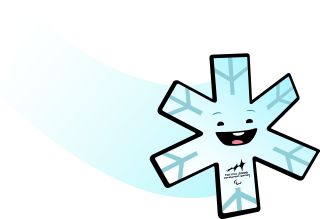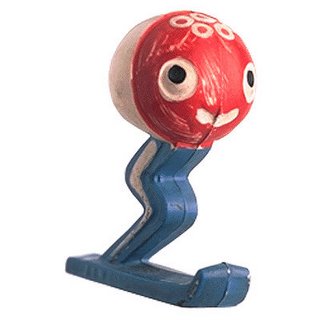good doc, bad doc
Unlike, say, neurology, physiatry seems an extremely unsexy field of specialty, one where practitioners aren't likely to get huzzahs for breakthrough studies or found eponymously named disorders. But lack of glory aside, something tells me physiatrists sleep well at night. Theirs is a science of helping physically compromised people remain as functional and pain-free as possible. Isn't that lovely? I know there are plenty of doctors in other specialties who went to medical school to help people, but so many of the specialists I've seen seem to have lost that vision somewhere along the line, such that patients become nothing but the sum of their Immunoglobin-G indices and antinuclear-antibody ratios.
When I waitressed I often approached my shifts as marathon rounds of Whack-a-Mole, the arcade game wherein players wield giant mallets to pound moles as they randomly pop up from various holes. My mallets were breadbaskets, coffee refills, food, and—when simply sating the moles' hunger wasn't enough—comped checks or management intervention. And so I moved through my shift, knocking down mole after mole, which were in turn replaced with new moles, and so on until closing time.

Now I'm the mole, and I'm sent away for blood tests and imaging and physical therapy. When that's not enough, I see new specialists and subspecialists, most of whom approach me with an air of challenge: Why are you here? What are you doing in my office? How do you expect me to help you? Put on the defensive, I try to describe the past year as I've experienced it through a suddenly and inexplicably uncooperative body, and as I do I begin to stutter and stammer and sometimes even tear up, none of which persuades them to take me any more seriously as someone whose compromise may not be entirely psychiatric. They ask me the same questions other doctors have asked, sometimes glancing through my file as I respond, and, when no obvious answer presents itself, they declare me not their problem and bring the hammer down. By the time I change out of my hospital gown and collect my things, I, too, am convinced that I'm a waste of their time.
This physiatrist, she was different, in much the same way my GP is. Sincere and welcoming—without seeming at all undoctorly. Maybe the difference between her demeanor and that of other specialists lies in the fact that she administers her own diagnostic procedures—as I understand, only physiatrists receive the proper training to perform nerve-conduction tests and EMGs. The nature of her specialty allows her ample time to see her patients, and maybe as a result she wants to have a more personal relationship with them. Or maybe she was attracted to her field because she’s the kind of person who wants to interact with patients in this way. At any rate, she made me feel like the most important person in the room as she calmly placed the electrodes and measured the varying lengths of nerve to be assessed, as she asked how I was doing after each round and carefully wiped the conductive gel—which made me smell like a baby's bottom—from each area before she moved on to the next. If not for the electric shocks, our session might have been a spa treatment—such was the delicacy of her touch and the unhurried nature of her ministrations.
When she finished she gave me her preliminary report, that there didn't appear to be anything suggestive of a nerve disease or disorder, and said that she would write up a more detailed analysis for my GP. She said that she didn't need me to set up another appointment at this time but that I should stop by her nurse's station on my way out to pick up her card in case I wanted to see her in the future.
I left her office feeling cared about, which struck me as extraordinary, but shouldn't we always feel that way when we leave our doctors' offices? If we don't feel physically better, shouldn’t we at least feel emotionally better for having had our needs seen to?
Once my GP told me that he was going to leave my file on his desk to keep my case fresh in his mind, hoping that some previously unexplored avenue might occur to him. That idea alone was almost enough to heal me. Wouldn't it be something if some measure of kindness and unhurried personal care were all I needed to leap this terrifying divide between mental and physical wellness? If in being regarded as a legitimate patient I might at last accept that my illness is best treated by my mental health team? Isn't that treatment plan worth a shot, docs?










